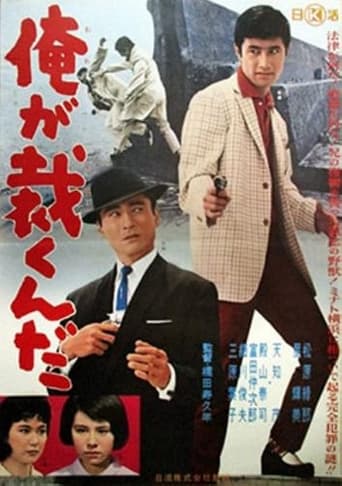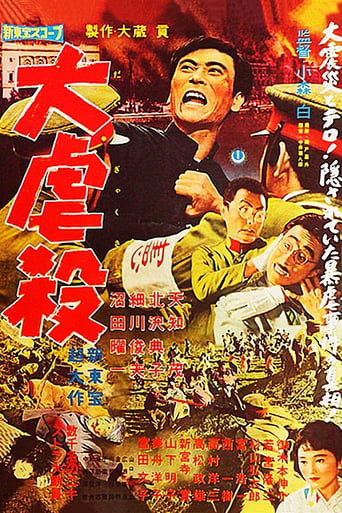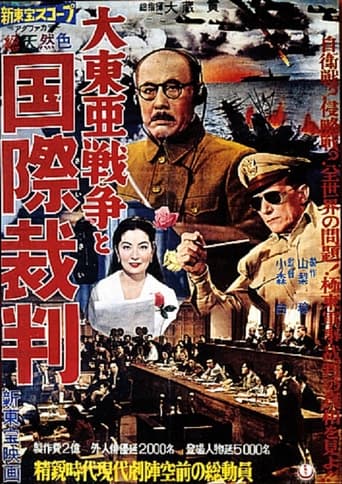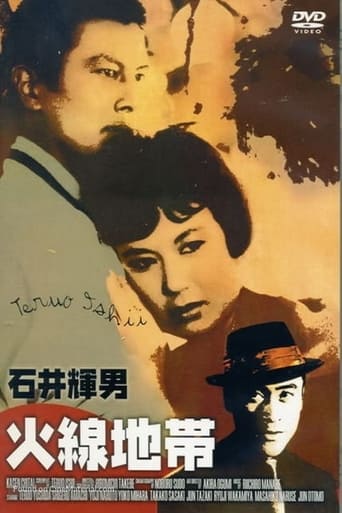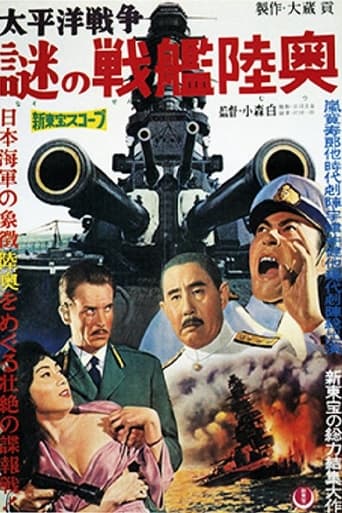Ryuji Wakamiya
Recently added
怪談残酷幽霊
May 17, 1964Horror film directed by Satoru Kobayashi. Kin'ya Ogawa served as Kobayashi's assistant on this film.
Horror
東海道非常警戒
Dec 10, 1960大虐殺
Jan 30, 1960On September 1, 1923, an unprecedented earthquake hit the Kanto region. The streets are filled with victims, and rumors are circulating around. The military seized the opportunity to round up and kill many socialists, anarchists, and Koreans, culminating in the arrest and murder of Sakae Osugi. His comrades and students are outraged by this atrocity. The young man Furukawa also becomes stronger in his determination to overthrow the military...
Thriller
トップ屋を殺せ
Sep 08, 1960激闘の地平線
Oct 15, 1960Japanese film about a juvenile delinquent who becomes a part of the Japanese Self-Defense Forces.
Drama
皇室と戦争とわが民族
Jun 11, 1960大東亜戦争と国際裁判
Jan 03, 1959In 1941, overpopulated Japan faces an economic boycott and its armed forces push further to the south. And despite negotiations between Japan and the U. S. A. war is declared with the attack on Pearl Harbour. Victories follow for Japan on land and sea and her forces push forward to the borders of India. But gradually the tide turns in favour of the Allies and after the atom bombings of Hiroshima and Nagasaki, Japan is compelled to accept the Potsdam Declaration and by the order of the Emperor agrees to unconditional surrender. Under the supervision of the occupation forces the International Military Tribunal opens in Tokyo to try the Japanese war leaders. Established in the cause of justice, and to prevent future aggressive wars the trials drag on for two and a half years. And on December 23, 1948, General Tojo and six other war leaders mount the thirteen steps to the gallows at Tokyo's Sugamo prison.
War
Fire line
May 24, 1961Deux petits délinquants sans grande envergure sont embauchés par un gang de yakuza pour voler un stock d'armes d'un clan adverse. Ils ignorent en fait qu'ils serviront de fusibles en cas de représailles. Mais leur nouvel employeur n'avait pas prévu qu'un autre malfrat, travaillant en solitaire, convoitait la même cargaison : il a assisté au vol et est bien décidé à devenir maître-chanteur.
Crime
太平洋戦争 謎の戦艦陸奥
Apr 01, 1960During the naval battle of Midway in WWII, the battleship Mutsu was in its home port in Japan. The ship's officers and crew were frustrated at not being able to take part in the fighting. They had been held back by orders from the Naval Ministry, but there was also a plot by saboteurs, who were trying to prevent the sailing of the Mutsu. Director Komori developed a suspenseful plot by including a fictional adaptation of the Russian spy Richard Sorge, who had been captured in Japan and subsequently executed. Komori brings a fictional Russian spy to the screen by portraying him as a military attaché at the German embassy. As Germany was an ally of Japan in WWII, a secret agent being a mole in the German embassy is a perfect cover. The interaction of the saboteurs and the officers and crew of the Mutsu make an exciting story.
War
